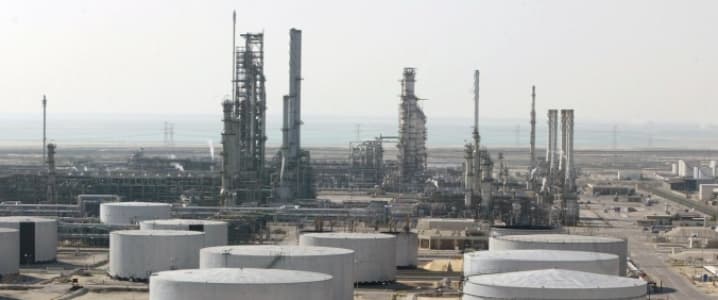OPEC shocked the oil markets on Wednesday, moving past their differences to agree on the first collective production cut since the global financial crisis. The surprise agreement sent oil prices skyrocketing by more than 6 percent.
The announcement had such a strong impact on oil prices precisely because a production cut was not thought to be under consideration. The meeting had been billed as “consultative,” that is, not a meeting where decisions would be made. OPEC officials also said that the deal that was on the table was just for an output “freeze,” not a cut. If OPEC wanted to signal to the world that it could still function as a group and was still relevant to the oil markets, it succeeded.
However, the devil will be in the details. OPEC said that it would trim its output from the current 33.24 million barrels per day (mb/d) to 32.5 mb/d. But it did not apportion the reductions to any of its members. Who will cut and by how much will be decided at the official meeting in Vienna on November 30.
Given OPEC’s track record of discord, one could be forgiven for being distrustful of the group’s ability to not only cordially agree to allocated production cuts, but even if such an outcome can be obtained, it is also possible that individual members do not abide by the limits. Each member is not eager to cap their production, and two years of low oil prices has made them intent on making up lost revenues on volume.
Putting aside that skepticism, if OPEC can proportion out roughly 740,000 barrels per day of production cuts between its members, even then the impact should be viewed by the oil market with a bit of a shrug, or at least a skeptical eye. That amount is not exactly a game changer. First of all, that is roughly the volume that was lost in Nigeria for much of this year due to attacks from the Niger Delta Avengers. Oil prices did rise quite a bit between February and June when the attacks were at their most intense, but they did not reach much beyond $50 per barrel.
Another reason why the OPEC cut may not be a very big deal is because Saudi Arabia may have been planning on reducing production anyways. Saudi Arabia typically ramps up production in summer to meet peak season demand – the kingdom uses oil in its electricity sector and air conditioning needs spike during the sweltering summer months. Then, as temperatures cool, output falls a bit. Related: The Shakeout Continues: 100 Oil And Gas Bankruptcies Yet To Come
Saudi Aramco might have had output cuts slated for this fall and winter. Agreeing to an official “production cut” with OPEC members could be a bit of clever marketing for an operational plan already in the works. From Saudi Arabia’s perspective, if that brought other OPEC members on board for some production limits, then it is a win without involving much sacrifice.
(Click to enlarge)
To be sure, a seasonal cut from Saudi Arabia was not inevitable – if OPEC members balked at any limits, Riyadh could have kept up the pressure. Nevertheless, Saudi Arabia needs higher oil prices, and so it will probably move forward with some seasonal maintenance. And in a sign of how desperate it is to boost prices, Saudi Arabia allowed its rival Iran to be exempt from the production limits. Libya and Nigeria will also not be subject to the limits, due to the enormous interruptions suffered in those two countries. Interestingly, Iraq, after years of not being subject to production quotas (back when OPEC followed them), was not included in the exemptions.
The OPEC cuts could potentially be swamped by other sources of output. Russia added 400,000 barrels per day from August to September. Nigeria could bring a few hundred thousand barrels per day back online. Libya has already added nearly 200,000 barrels per day in recent months, and is targeting another 500,000 barrels per day of increased output. And the massive Kashagan oil field in Kazakhstan is set to come online before the end of the year, and could add as much as 370,000 barrels per day in 2017 (although those estimates are debatable). All of those gains have the potential to more than offset the planned cuts from OPEC of about 700,000 barrels per day. Related: Trudeau Pushes Through LNG Megaproject Despite Environmental Concerns
Moreover, if oil prices rise, it could greenlight new drilling around the world. State-owned companies will be pleased, but so will publically-traded companies large and small. "This gives U.S. producers more confidence,” James West, partner at the investment firm Evercore ISI, told Reuters. “They may become a touch more aggressive than they had planned to be.”
As Ben Winkley of Argus Media noted on Twitter on Thursday, major investment banks are underwhelmed by the OPEC deal:





ADVERTISEMENT


But, despite the criticism and the numerous obituaries written about OPEC over the past two years, the group is obviously still relevant. Even if the supply cuts are underwhelming, the psychological effect the group has on the markets is still enormous. Oil prices surged more than 6 percent on Wednesday and the share prices of energy producers around the world surged. It remains to be seen if the rally can continue.
By Nick Cunningham of Oilprice.com
More Top Reads From Oilprice.com:
- OPEC Deal Could Fall Apart At The Seams As Iraq Revolts
- 9/11 Bill Crashes Saudi Stock Exchange, Bond Market Ambitions
- Oil Spikes After OPEC Reaches Deal On Output Cap


















